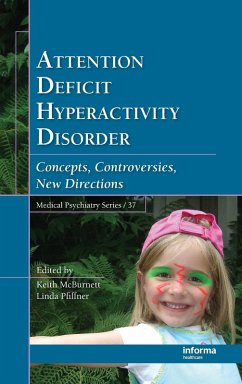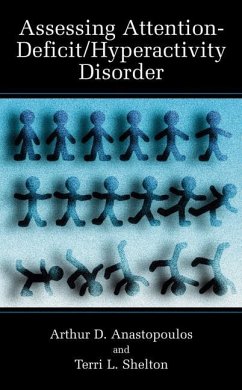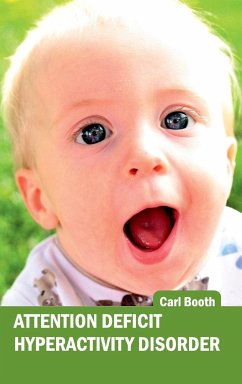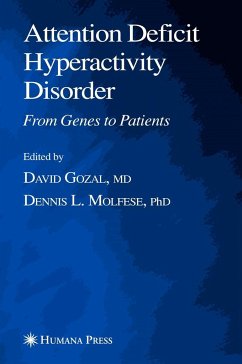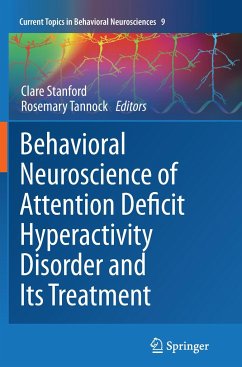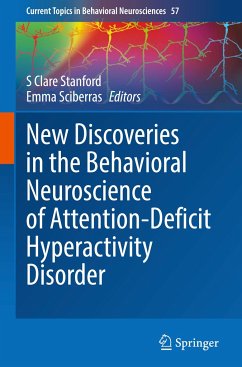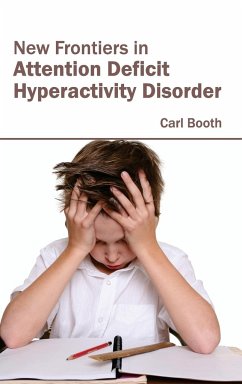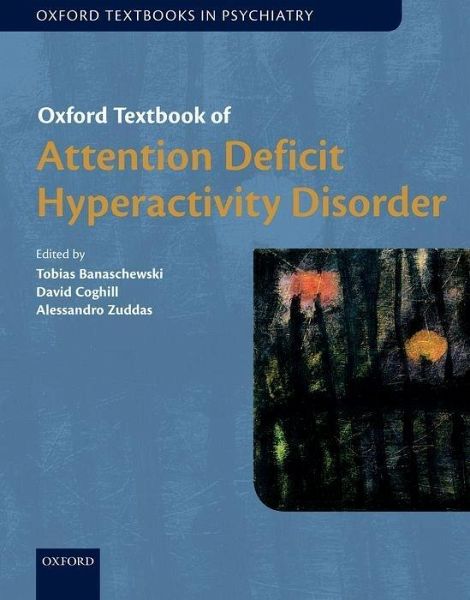
Oxford Textbook of Attention Deficit Hyperactivity Disorder
Versandkostenfrei!
Versandfertig in 1-2 Wochen
192,99 €
inkl. MwSt.

PAYBACK Punkte
96 °P sammeln!
Attention deficit hyperactivity disorder (ADHD) is one of the most common mental disorders affecting children and adolescents. The condition is characterized by a persistent pattern of behavioural symptoms including inattentiveness, hyperactivity, and impulsiveness associated with substantial impairment in social, academic, and/or occupational functioning. Clinical and research interest in the topic of ADHD has grown substantially in recent years but, despite this, there is still a lack of up-to-date reference texts devoted to the diagnosis, assessment, and management of patients with these co...
Attention deficit hyperactivity disorder (ADHD) is one of the most common mental disorders affecting children and adolescents. The condition is characterized by a persistent pattern of behavioural symptoms including inattentiveness, hyperactivity, and impulsiveness associated with substantial impairment in social, academic, and/or occupational functioning. Clinical and research interest in the topic of ADHD has grown substantially in recent years but, despite this, there is still a lack of up-to-date reference texts devoted to the diagnosis, assessment, and management of patients with these conditions. Part of the Oxford Textbooks in Psychiatry series, the Oxford Textbook of Attention Deficit Hyperactivity Disorder attempts to bridge this gap by providing an authoritative, multi-disciplinary guide to the latest research developments in the diagnosis, assessment, and management of patients with ADHD. Organized into eight key sections, this textbook covers the aetiology, pathophysiology, epidemiology, clinical presentation, co-morbidity, clinical assessment, and clinical management of ADHD. Individual chapters address key topics such as the clinical assessment of ADHD in adults, and contain information on best practice, current diagnostic guidelines including DSM-5 and ICD-11, and key up-to-date references for further reading. Edited and written by an international group of recognized experts, the Oxford Textbook of Attention Deficit Hyperactivity Disorder is a comprehensive resource suitable for child and adolescent psychiatrists, adult psychiatrists, and psychiatric trainees, as well as child psychologists, paediatricians, psychiatric nurses, and other mental health care professionals.






